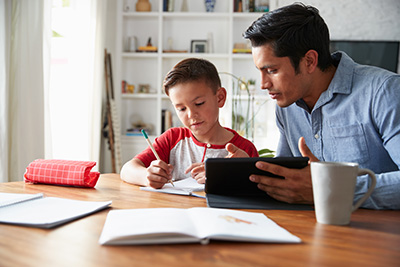Private: Parents
Wrap Up
 As we’ve discussed, the past months have not been easy. With all you’ve had to do, it’s been confusing, tiring, and stressful. As you move forward, dealing with the certainty of uncertainty, remember to take a few deep breaths and try to focus on one step at a time.
As we’ve discussed, the past months have not been easy. With all you’ve had to do, it’s been confusing, tiring, and stressful. As you move forward, dealing with the certainty of uncertainty, remember to take a few deep breaths and try to focus on one step at a time.
Remember that supporting your child’s learning doesn’t mean that you have to plan every lesson. You don’t have to recreate the school day. And you certainly don’t have to take on the role of the teacher.
So what do you have to do? What does “support learning” actually mean? It means that you:
- Create a time and space for your child to learn
- Encourage your child to learn and to do any work that is assigned
- Answer your child’s questions or provide help when needed
- Support your child socially and emotionally
This might sound a bit overwhelming. But with just a little planning and a few helpful resources, you can do this. Below are a few things to keep in mind as you go.
Create a time and space for your child to learn
Encourage your child to learn and to do any work that is assigned
Support your child socially and emotionally
Support your child with a disability
Support your child as she returns to in-person learning
When you are ready, go to the next page to finish up and give us your feedback!